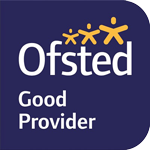English Overview
Our Vision
We aim for our students to:
- Explore the importance of character through Literature.
- Create a safe learning environment that fosters the ability to explore English.
- Motivate high aspirations in literacy and academic progress.
We believe that a strong foundation in English language and literature is essential for academic success, as well as for life beyond secondary school, and we strive to provide our students with the necessary skills, knowledge, and cultural capital to succeed in a diverse and rapidly changing world.
To achieve our intent, we implement a rigorous and coherent English curriculum that is aligned with the National Curriculum and GCSE requirements. Our curriculum is designed to be challenging, stimulating, and inclusive, whilst addressing the individual needs of each student. We believe in a holistic approach to teaching English that combines critical analysis, creativity, and cultural understanding. We aim to develop in our students a love of literature, a passion for writing, and a confidence in expressing themselves orally.
Curriculum Intent
The intent of our English curriculum is to develop students literacy, communication and understanding of literature. We aim to equip every student with the skills and motivation to read independently for sustained periods across a range of texts that are both challenging and enjoyable. By cultivating a love of reading and fostering an environment in which reading is valued and celebrated, we aim to ensure that every student has the necessary linguistic, cognitive, and social capital to achieve success across the curriculum and to participate fully in society.
Pupils receive wide and varied reading opportunities to encourage their ability to engage with and understand various texts. Learners also develop research and analysis skills to enable them to interpret and evaluate information effectively. The texts covered allow our students to engage in important issues such as conflict, equality and historical change. We cover Shakespeare and poetry each year of our journey to ensure a breadth of experiences is offered to our students.
Students develop a comprehensive understanding of the purpose, audience, and context of different types of written texts. Students develop mastery in composing a range of written texts that are coherent, well-structured, and engaging to their target audience. They learn to use precise language, appropriate grammar, and advanced vocabulary to effectively communicate their ideas and opinions in writing.
It is important to us that we provide students with the skills and confidence to communicate effectively across a wide range of situations, both in and out of the classroom. This includes developing the ability to speak and listen with clarity and purpose, engage in respectful dialogue, and express themselves in a way that reflects their thoughts and feelings accurately. We interweave oracy throughout the English curriculum – including as part of our assessments in year 7 onwards in order to raise the profile of this aspect of English. As well as classroom discussion and questioning we have planned for a range of oracy features including debates, drama, presentations and persuasive speeches. We also teach drama as a discrete subject in KS3.





